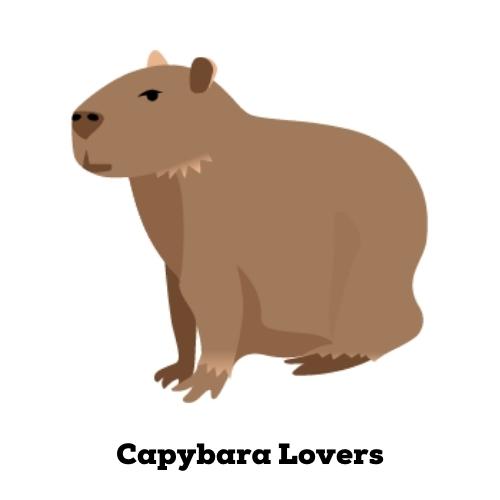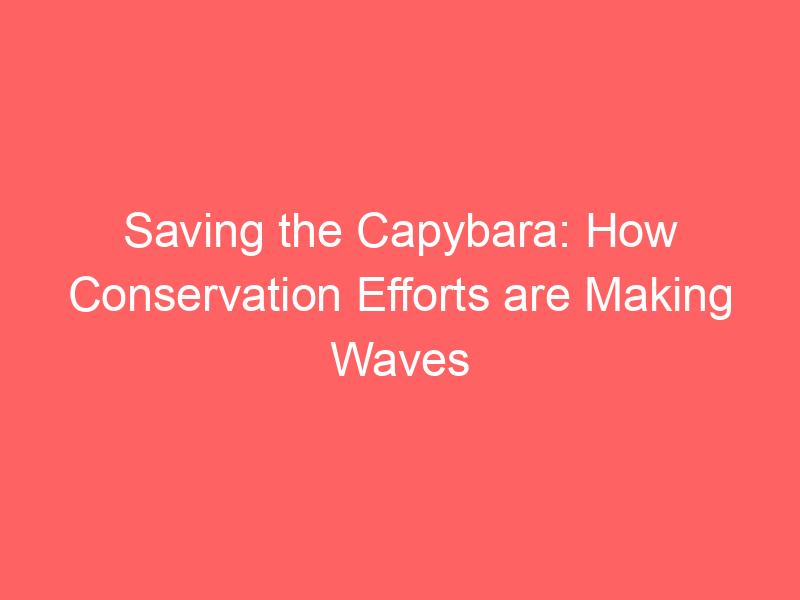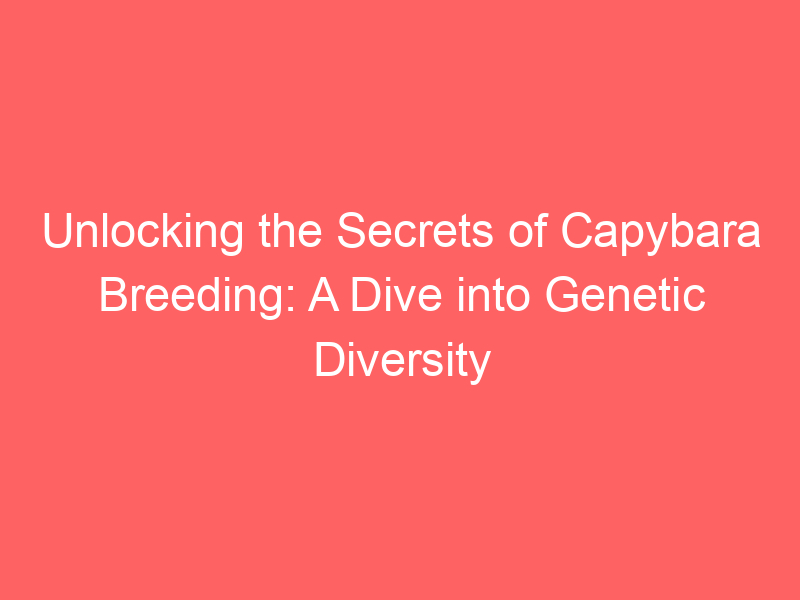Did you know that capybaras are the largest rodents in the world? They’re native to South America and can weigh up to 150 pounds! These gentle giants are also great swimmers and can stay submerged for up to six minutes. When it comes to their diet, they’re mostly herbivores who enjoy eating grasses, water plants, and fruits. Keep reading to learn more about what these amazing animals eat and how you can provide the best diet for your pet capybara.
What is the natural diet of capybaras in the wild?
Capybaras are the world’s largest rodents and they inhabit regions of South America. In their natural habitat, they feed primarily on soft grasses but also consume aquatic plants, leaves, fruit, bark, and twigs. A capybara’s diet consists of between 70-90% grasses each day – making them major contributors to creating a diverse plant environment around their habitats!
To round them out, capybaras take in some freshwater organisms and invertebrates such as crustaceans too. We need to understand what a capybara’s natural diet looks like so we can best replicate that in captivity or protected parks. Plus it’s just fascinating to learn about how unique the biggest rodents on earth are!
What kind of food should I give my pet capybara, and how often should it be fed?
Having a pet capybara is unique and lots of fun, so you want to make sure that your furry friend gets the right diet. A good nutritional balance for your capybara should include hay, fresh greens like kale or bok choy, pumpkin, squash, yams, root vegetables, and fruits like melons or bananas. You can also give them fresh grasses from your yard – just be sure it hasn’t been sprayed with any pesticides or herbicides.
They will also enjoy treats like pellets made specifically for capybaras as well as apples and nutritious snacks such as carrots or sweet potatoes. Try to avoid giving them sugary sweets or processed junk food so they get the nutrition they need to stay healthy and fit. In terms of frequency, aim to feed your pet two-three times a day so they aren’t overfed but still get enough calories throughout the day.
Are there any specific vitamins or minerals that capybaras need in their diet, and how can I ensure they get enough of them?
Capybaras are a unique species and require a special diet to ensure that they stay healthy and happy. One of the most important things to consider when it comes to their nutritional needs is vitamins and minerals, as capybaras need specific amounts to thrive. Fortunately, making sure your capybara gets enough of these nutrients can be done with some careful planning! Vitamins A, D, and E are particularly important for healthy coats, bones, teeth, and vision in your pet.
Calcium is also necessary for strong bones and teeth, as well as muscle health. Your capybara will also benefit from adequate levels of vitamin B including B6 and folic acid. Luckily, providing your capybara with the right combination of organic fruits, vegetables and plants like hay should keep their vitamin intake balanced. There’s no need to worry—your pet will be getting all the nutrition they need!
Are there any foods that are harmful or toxic to capybaras?
Capybaras may be native to South America but they have a surprisingly diverse diet! They can eat just about everything from grasses and aquatic plants to watermelon, squash, melon, and even sweet potatoes. However, that doesn’t mean that any food is safe for them to eat. Foods like chocolate, caffeine, avocado pits or skins, onions, and garlic can all be toxic to capybaras so it’s important to keep these foods away!
Additionally, since their legs are shorter than other rodents such as guinea pigs or hamsters, they’re not able to reach higher branches of trees which means they are more limited in the types of plants they can consume. Keeping these things in mind will help ensure your capybara stays healthy and happy!
Can capybaras eat fruits and vegetables, and if so, which ones are best for them?
Not only are capybaras some of the most adorable animals in existence, but they have a surprisingly wide variety of dietary options! While their diet primarily consists of grasses and aquatic plants, they can also benefit from an occasional treat in the form of fruits and vegetables.
Carrots, apples, grapes, pumpkins, squash, sweet potatoes, and bananas are all excellent choices for feeding capybaras. However, their treats should be kept moderate since these creatures have very sensitive digestive systems; it is recommended that no more than 10% of a capybara’s diet consist of treats!
How can I ensure that my pet capybara is maintaining a healthy weight and not becoming overweight or underweight?
Taking care of a pet capybara can be difficult, but one of the most important things to consider is making sure that your little friend is staying at a healthy weight. One easy way to accomplish this is to monitor their diet closely and measure the food for each meal. Make sure they’re eating a balanced diet with proper levels of protein and carbohydrates.
You should also take them on daily walks so they can get some exercise; just make sure you don’t overdo it, as they are known to overheat easily in hot weather or overexertion. Finally, regular checkups with an exotic vet will help ensure that your pet stays at a healthy weight both physically and mentally. With vigilance and care, you can keep your capybara fit and happy!
Final Thoughts
Proper diet and nutrition are essential for keeping your capybara healthy and happy. A well-balanced diet will help them stay active and prevent obesity, which can lead to health problems down the road. Be sure to consult with a veterinarian before making any major changes to your capybara’s diet. And, as always, monitor their food intake and stool output closely to ensure they’re getting the nutrients they need.














